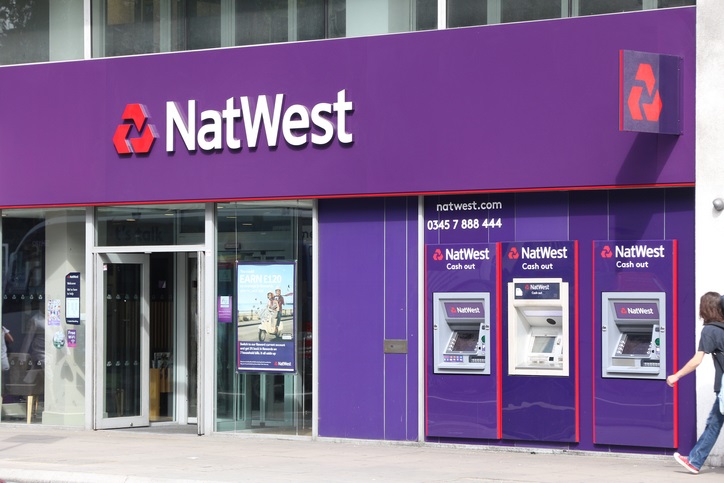NatWest is tackling 2020 with aplomb, but will it be enough?
Bank can weather economic storms, but share price remains down and worsening pandemic looms.
30th October 2020 10:06
by Richard Hunter from interactive investor
Bank can weather economic storms, but share price remains down and worsening pandemic looms.

NatWest (LSE:NWG) has rounded off the banking season with a surprise swing to profit for the quarter, driven largely by a lower impairment charge and an improved contribution from its retail banking unit.
The Retail Banking division, formerly known as UK Personal Banking, accounts for around 40% of overall income and is a good gauge of consumer activity.
Increased spending and mortgage applications in the period drove an improvement in fortunes for the bank, despite pressure on income resulting from lower overdraft fees and a dilution of mortgage margins.
A decrease of 8% in operating costs and a significantly lower impairment charge from the previous quarter added some shine to an overall operating profit which was almost 140% above the previous number.
As has been seen across the sector this reporting season, the stabilisation of the economy during the quarter led to lower bad debt provisions.
NatWest has set aside a further £254 million, compared to an expected figure of £630 million, bringing the cumulative total to around £3.2 billion. The bank is now guiding that the full-year provision should be towards the lower end of the range previously advised, namely £3.5 billion to £4.5 billion.
The ability of the bank to weather any oncoming economic storms is comforting. NatWest is awash with capital and access to capital, and in the period the Tier 1 ratio increased to stand at 18.2% from a previous figure of 17.2%.
At the same time, the liquidity pool is unchanged at £243 billion with a liquidity capital ratio of 157%.
In terms of some of the key metrics, there was also a swing to a positive return on tangible equity, while a cost/income ratio of 74.5% compares favourably with the previous year, if not the previous quarter.
More broadly, the increase in net lending and promising further growth in the digital proposition, which now numbers 9.3 million active users, bode well for immediate prospects. The fact that the bank has beaten expectations on most fronts is proof that that progress is possible even with a challenging backdrop.
- NatWest: New name, same old problems?
- Are Lloyds Bank and Tesco on list of best value stocks to buy?
- Take control of your retirement planning with our award-winning, low-cost Self-Invested Personal Pension (SIPP)
However, it is also possible that the more recent economic concerns emanating from the latest Covid-19 outbreaks, let alone the outcome of the UK/EU Brexit deliberations, could lead to a rather more testing final quarter.
With interest rates remaining on the floor, pressure on margins will remain, as evidenced by the latest figure of 1.65%, down from 1.97% a year ago.
The possible deterioration in the UK economy over the coming months, allied to the bank’s hefty exposure to the SME sector, could well overshadow the progress being made.
Even so, NatWest can but play the hand it has been dealt and has done so with some aplomb in the quarter.
Unfortunately, this is not enough to repair the damage which has already been suffered and the share price has reacted accordingly, having fallen by 51% in 2020.
Over the last year, a decline of 47% compares with a drop of 24% for the wider FTSE 100 and, with prospects remaining bleak for the wider economy, the market consensus has recently been trimmed, now coming in at a cautious ‘buy’.
These articles are provided for information purposes only. Occasionally, an opinion about whether to buy or sell a specific investment may be provided by third parties. The content is not intended to be a personal recommendation to buy or sell any financial instrument or product, or to adopt any investment strategy as it is not provided based on an assessment of your investing knowledge and experience, your financial situation or your investment objectives. The value of your investments, and the income derived from them, may go down as well as up. You may not get back all the money that you invest. The investments referred to in this article may not be suitable for all investors, and if in doubt, an investor should seek advice from a qualified investment adviser.
Full performance can be found on the company or index summary page on the interactive investor website. Simply click on the company's or index name highlighted in the article.